So you’ve finally booked that African overland tour you’ve been dreaming of. Your bags are packed and your head is filled with the prospect of exploring the continent’s misty rainforests, vast savannah plains, and glorious tropical coastlines.
Whether you’re a wide-eyed first-timer or a frequent visitor, Africa will not fail to get under your skin. And, its easy to see why. Africa has few peers when it comes to natural beauty, and so protecting the people and landscapes that put this continent on so many bucket lists is a must.
It’s becoming more and more important to think about the marks we leave on places when we travel. After all, we all want future generations to be able to enjoy the beautiful places we visit. However, it can be difficult to know where to start, but don’t fear: we’ve put together a helpful guide on how to travel responsibly and ethically in Africa for your upcoming overland tour.
Eco-Friendly travel tips for an Overland Safari:
1. Be conscious of your carbon footprint
This is where it all begins. One of the worst contributors to global carbon emissions is the travel sector, contributing an estimated 8% each year. There’s no way of getting to Africa, but to fly. But, being conscious of your carbon footprint before you travel is crucial to understanding your impact on the planet and how best to offset it. If you want to be precise, you can calculate your carbon emissions using one of the free online calculators, like Carbon Footprint.
The easiest option is to offset directly with the airline when you book your flight. There are a few airlines – such as Qantas, KLM, Air Canada, and Austrian Airlines – that have carbon offset programs that encourage travelers to pay an extra fee on top of the flight cost which is donated to a carbon offset scheme. Do it and be one step closer to responsible travel.
2. Be Waterwise
In 2018, the city of Cape Town faced one of the worst droughts in its history and millions of people braced themselves for “Day Zero” – when most of the city’s taps would run dry. But, through aggressive water conservation, effective awareness campaigns, and a bit of rain, this looming day was narrowly avoided.
Droughts of this magnitude aren’t just local to Cape Town. Worldwide, it’s estimated that more than 780 million people – 40% of whom live in sub-Saharan Africa – don’t have access to clean water. Water is scarce in the large proportion of the continent, so doing your bit to preserve this life-giving resource is a must no matter where you go on your African overland tour. Start by calculating your water impact footprint with this free calculator then be sure to save as much water as possible while on your overland tour.
You can use water responsibly in several ways:
- You probably know by now that plastic water bottles are a no-no. Instead, bring along your glass or stainless steel water bottle and fill it up when possible. If the water is hot after a day of traveling, rather than toss it out just anywhere, decant it somewhere of value (like in a garden) or re-purpose it for something else (like washing your hands, clothes, etc).
- If you want to be a friend to the environment, opt for a shower instead of taking a bath. And, be sure to turn it off while lathering yourself with soap, shampooing, or shaving.
- Try to flush the toilet less. Each flush uses between 6 and 14 liters, depending on the kind of toilet.
- Use a cup to rinse your mouth when you brush your teeth rather than letting the taps run.
- When doing your laundry while on an overland tour, take note that lightweight, quick-dry, dark-colored clothing can be washed in your bathroom basin rather than using a water-hungry washing machine. Try to re-wear certain items of clothing (like pants and shirts) which will also help lessen the overall bulk and weight of your luggage.
3. Plant a tree
Planting a tree is one of the biggest and best ways you can offset your carbon footprint and give back to the land. You can join or donate to several tree-planting projects around the world, such as Carbon Footprint’s Kenyan project who has planted over 150 000 trees in Kenya’s Great Rift Valley or One Tree Planted who has been able to put more than 2.5 million trees in the ground since 2014.
4. Choose experiences that make a difference
Do your homework: choose destinations and activities that are eco-friendly. Many African destinations have adapted to more responsible travel practices and have developed sustainable projects that have a positive social and environmental impact, such as Botswana’s high value – low impact policy which limits the number of people who can stay in conservation areas. This has a huge benefit in helping the conservation of wilderness areas.
While on a Southern Africa overland you could also learn more about Cape Town’s incredible biodiversity in the beautiful Kirstenbosch Gardens, or visit SANCCOB (South African Foundation for the Conservation of Coastal Birds) where you can ‘adopt’ and sponsor an African penguin.
It also helps to know what attractions to avoid when you’re traveling. Often, travelers engage in activities that are harmful to animals and the environment without even realizing it, such as cuddling lion cubs and walking with lions. While it’s these activities are tempting, it’s important to remember that these are wild animals and not interacting with humans generally keeps wildlife safe and equipped for survival.
5. Travel in groups
Traveling with a group has many benefits and is one of the easiest ways to be a greener traveler. Aside from the safety in numbers factor; reduced emissions, less wasted water, and decreased fuel consumption are just a few of the environmental benefits that group tours have to offer.
The sharing economy is a great step in the direction of a greener planet for everyone and so is traveling light. Less baggage weight simply means reduced pressure on the vehicle you’re traveling on, so subsequently fewer fuel emissions. The five kilos less from you might not seem like much but if everyone did it the impact would be huge.
6. Say no to plastic bags and straws
Plastic is ubiquitous in our culture. It’s convenient, fast, and cheap. But, it also happens to be one of the most pressing environmental issues. Millions of animals are killed by plastics every year and so reducing the amount of plastic we use is imperative. The best way to do this is by using a re-useable shopping bag, carrying your water bottle instead of buying water, and by refusing plastic straws.
Travel Responsibly Tours:
From From From From From From From From From From From From From From From From From From From From From From From From From From From From From From From From From From From From From From From From From From From From From From From From From From From From From From From From From From From From From From From From From From From From From From From From From From From From From From From From From From From From From From From From From From From From From From From From From From From From From From From From From From From From From From From From From From From From From From From From From From From From From From From From From From From From From From From From
Tour Length
64 days
Group Size
Min 1 Max 22
Starts & Ends
Starts: Cape Town Ends: Nairobi
Countries
Kenya,
Uganda,
Tanzania,
Malawi,
Zambia,
Zimbabwe,
Botswana,
Namibia,
South Africa
Overview
64 Day Cape Town to Masai Mara Adventure
Tour start → end dates
Price
Enquire
07 Jul 2024
→
08 Sep 2024
Check Availability
14 Jul 2024
→
15 Sep 2024
Check Availability
21 Jul 2024
→
22 Sep 2024
Check Availability
11 Aug 2024
→
13 Oct 2024
Check Availability
18 Aug 2024
→
20 Oct 2024
Check Availability
25 Aug 2024
→
27 Oct 2024
Check Availability
08 Sep 2024
→
10 Nov 2024
Check Availability
22 Sep 2024
→
24 Nov 2024
Check Availability
13 Oct 2024
→
15 Dec 2024
Check Availability
10 Nov 2024
→
12 Jan 2025
Check Availability
05 Jan 2025
→
09 Mar 2025
Check Availability
16 Feb 2025
→
20 Apr 2025
Check Availability
30 Mar 2025
→
01 Jun 2025
Check Availability
13 Apr 2025
→
15 Jun 2025
Check Availability
27 Apr 2025
→
29 Jun 2025
Check Availability
25 May 2025
→
27 Jul 2025
Check Availability
08 Jun 2025
→
10 Aug 2025
Check Availability
22 Jun 2025
→
24 Aug 2025
Check Availability
06 Jul 2025
→
07 Sep 2025
Check Availability
20 Jul 2025
→
21 Sep 2025
Check Availability
03 Aug 2025
→
05 Oct 2025
Check Availability
10 Aug 2025
→
12 Oct 2025
Check Availability
17 Aug 2025
→
19 Oct 2025
Check Availability
24 Aug 2025
→
26 Oct 2025
Check Availability
07 Sep 2025
→
09 Nov 2025
Check Availability
05 Oct 2025
→
07 Dec 2025
Check Availability
19 Oct 2025
→
21 Dec 2025
Check Availability
07 Dec 2025
→
08 Feb 2026
Check Availability
Tour Length
16 days
Group Size
Min 1 Max 16
Starts & Ends
Starts: Johannesburg Ends: Johannesburg
Countries
Zimbabwe, Botswana, South Africa
Overview
Travel to Southern Africa and return to South Africa via Johannesburg, the Kruger National Park, Victoria Falls, and the Khama Rhino Sanctuary. This is your chance to see gorgeous sunsets, go on safari over the plains of Africa, camp in a secluded area, and travel through rivers teeming with recognizable species. Experience the wonders of majestic waterfalls, be mesmerized by sightings of threatened species, and be encouraged by the perseverance of communities rising out of difficult circumstances as you travel through South Africa, Botswana, and Zimbabwe. Take in Southern Africa and leave with a heart full of memories, inspiration, and fresh hope.
16 Day Southern Africa Overland
Tour start → end dates
Price
Enquire
02 Jun 2024
→
17 Jun 2024
Check Availability
07 Jul 2024
→
22 Jul 2024
Check Availability
21 Jul 2024
→
05 Aug 2024
Check Availability
04 Aug 2024
→
19 Aug 2024
Check Availability
18 Aug 2024
→
02 Sep 2024
Check Availability
15 Sep 2024
→
30 Sep 2024
Check Availability
22 Sep 2024
→
07 Oct 2024
Check Availability
06 Oct 2024
→
21 Oct 2024
Check Availability
20 Oct 2024
→
04 Nov 2024
Check Availability
17 Nov 2024
→
02 Dec 2024
Check Availability
08 Dec 2024
→
23 Dec 2024
Check Availability
22 Dec 2024
→
06 Jan 2025
Check Availability
12 Jan 2025
→
27 Jan 2025
Check Availability
09 Feb 2025
→
24 Feb 2025
Check Availability
09 Mar 2025
→
24 Mar 2025
Check Availability
06 Apr 2025
→
21 Apr 2025
Check Availability
27 Apr 2025
→
12 May 2025
Check Availability
18 May 2025
→
02 Jun 2025
Check Availability
01 Jun 2025
→
16 Jun 2025
Check Availability
15 Jun 2025
→
30 Jun 2025
Check Availability
29 Jun 2025
→
14 Jul 2025
Check Availability
06 Jul 2025
→
21 Jul 2025
Check Availability
13 Jul 2025
→
28 Jul 2025
Check Availability
27 Jul 2025
→
11 Aug 2025
Check Availability
10 Aug 2025
→
25 Aug 2025
Check Availability
24 Aug 2025
→
08 Sep 2025
Check Availability
31 Aug 2025
→
15 Sep 2025
Check Availability
07 Sep 2025
→
22 Sep 2025
Check Availability
14 Sep 2025
→
29 Sep 2025
Check Availability
21 Sep 2025
→
06 Oct 2025
Check Availability
28 Sep 2025
→
13 Oct 2025
Check Availability
05 Oct 2025
→
20 Oct 2025
Check Availability
19 Oct 2025
→
03 Nov 2025
Check Availability
02 Nov 2025
→
17 Nov 2025
Check Availability
21 Dec 2025
→
05 Jan 2026
Check Availability
23 Apr 2024
→
01 Jan 1970
Check Availability
Tour Length
10 days
Group Size
Min 1 Max 16
Starts & Ends
Starts: Nairobi Ends: Arusha
Countries
Kenya, Tanzania
Overview
Experience the Highlights of Kenya and Tanzania on this 10 day journey exploring East Africa's wildlife region. Relish multiple game drives in the Masai Mara National Reserve and the Ngorongoro Crater with the ultimate highlight of camping in the Serengeti National Park, a once in a lifetime experience. Engage with local tribes of the Maasai and learn about their culture and modern day life. Appreciate the beauty of an African sunrise while enjoying the view from a hot-air balloon, breathtaking to say the least.
This safari is a mixture of accommodation styles: Hotel (3 nights), Lodge (2 nights), Permanent Tented Basic Lodge (2 nights), Camping with basic facilities (2 nights)
Kenya & Tanzania Safari – 10 Day Highlights
Tour start → end dates
Price
Enquire
17 May 2024
→
26 May 2024
Check Availability
24 May 2024
→
02 Jun 2024
Check Availability
31 May 2024
→
09 May 2024
Check Availability
11 Jun 2024
→
20 Jun 2024
Check Availability
21 Jun 2024
→
30 Jun 2024
Check Availability
28 Jun 2024
→
07 Jul 2024
Check Availability
12 Jul 2024
→
21 Jul 2024
Check Availability
19 Jul 2024
→
28 Jul 2024
Check Availability
23 Jul 2024
→
01 Aug 2024
Check Availability
26 Jul 2024
→
04 Aug 2024
Check Availability
02 Aug 2024
→
11 Aug 2024
Check Availability
20 Aug 2024
→
29 Aug 2024
Check Availability
30 Aug 2024
→
08 Sep 2024
Check Availability
10 Sep 2024
→
19 Sep 2024
Check Availability
17 Sep 2024
→
26 Sep 2024
Check Availability
18 Sep 2024
→
27 Sep 2024
Check Availability
20 Sep 2024
→
29 Sep 2024
Check Availability
24 Sep 2024
→
03 Oct 2024
Check Availability
27 Sep 2024
→
06 Oct 2024
Check Availability
04 Oct 2024
→
13 Oct 2024
Check Availability
08 Oct 2024
→
17 Oct 2024
Check Availability
11 Oct 2024
→
20 Oct 2024
Check Availability
18 Oct 2024
→
27 Oct 2024
Check Availability
25 Oct 2024
→
03 Nov 2024
Check Availability
01 Nov 2024
→
10 Nov 2024
Check Availability
15 Nov 2024
→
24 Nov 2024
Check Availability
13 Dec 2024
→
22 Dec 2024
Check Availability
27 Dec 2024
→
05 Jan 2025
Check Availability
03 Jan 2025
→
12 Jan 2025
Check Availability
17 Jan 2025
→
26 Jan 2025
Check Availability
07 Feb 2025
→
16 Feb 2025
Check Availability
14 Feb 2025
→
23 Feb 2025
Check Availability
28 Feb 2025
→
09 Mar 2025
Check Availability
07 Mar 2025
→
16 Mar 2025
Check Availability
25 Apr 2025
→
04 May 2025
Check Availability
09 May 2025
→
18 May 2025
Check Availability
23 May 2025
→
01 Jun 2025
Check Availability
30 May 2025
→
08 Jun 2025
Check Availability
06 Jun 2025
→
15 Jun 2025
Check Availability
13 Jun 2025
→
22 Jun 2025
Check Availability
20 Jun 2025
→
29 Jun 2025
Check Availability
27 Jun 2025
→
06 Jul 2025
Check Availability
04 Jul 2025
→
13 Jul 2025
Check Availability
08 Jul 2025
→
17 Jul 2025
Check Availability
11 Jul 2025
→
20 Jul 2025
Check Availability
15 Jul 2025
→
24 Jul 2025
Check Availability
18 Jul 2025
→
27 Jul 2025
Check Availability
22 Jul 2025
→
31 Jul 2025
Check Availability
25 Jul 2025
→
03 Aug 2025
Check Availability
01 Aug 2025
→
10 Aug 2025
Check Availability
05 Aug 2025
→
14 Aug 2025
Check Availability
08 Aug 2025
→
17 Aug 2025
Check Availability
12 Aug 2025
→
21 Aug 2025
Check Availability
15 Aug 2025
→
24 Aug 2025
Check Availability
22 Aug 2025
→
31 Aug 2025
Check Availability
29 Aug 2025
→
07 Sep 2025
Check Availability
05 Sep 2025
→
14 Sep 2025
Check Availability
09 Sep 2025
→
18 Sep 2025
Check Availability
12 Sep 2025
→
21 Sep 2025
Check Availability
19 Sep 2025
→
28 Sep 2025
Check Availability
23 Sep 2025
→
02 Oct 2025
Check Availability
26 Sep 2025
→
05 Oct 2025
Check Availability
30 Sep 2025
→
09 Oct 2025
Check Availability
03 Oct 2025
→
12 Oct 2025
Check Availability
10 Oct 2025
→
19 Oct 2025
Check Availability
17 Oct 2025
→
26 Oct 2025
Check Availability
24 Oct 2025
→
02 Nov 2025
Check Availability
31 Oct 2025
→
09 Nov 2025
Check Availability
07 Nov 2025
→
16 Nov 2025
Check Availability
21 Nov 2025
→
30 Nov 2025
Check Availability
12 Dec 2025
→
21 Dec 2025
Check Availability
26 Dec 2025
→
04 Jan 2026
Check Availability
How to travel ethically in Africa:
1. Be socially conscious of where you are
First and foremost, do a little homework on the culture of the people living in the places you’re traveling to and be sensitive to that culture. This is especially necessary when traveling in a continent as diverse as Africa.
This goes beyond the usual faux pas such as assuming a person’s cultural background or off-handed generalizations about traditions. Many minority and indigenous communities right across the African continent are being displaced because of political conflicts, natural resource extraction, large-scale infrastructure projects, and tourism parks.
Taking some time to learn about the customs, traditions, and history of the local people will go a long way in showing respect to your hosts. And, if you’re unsure of how to act or whether or not a particular attraction is ethical then ask a local. Africans are renowned for their friendliness and we are very happy to share our different cultures and let you know what’s okay and what’s not.
2. Buy local
Buying souvenirs is a great way to remind you of your African overland tour. Just be sure that your buying locally made crafts.
Africa has a huge informal economy based around the sale of curios and craft. Traditionally this includes wood carving, wire products, basket weaving, beading, ceramic work, and even painting. Unfortunately, due to demand, the market has become flooded with cheap imports that have no real cultural authenticity and don’t benefit the local economy.
By purchase of souvenirs directly from community markets and crafters, your hard-earned travel money goes directly to local businesses and can help an economy thrive.
3. Avoid “drive-by” township tours
Everyone wants an authentic “Africa experience” while on an overland tour. And, the easiest way to do this is by making an effort to meet people that are not getting paid to guide you, carry your luggage or serve you food. This is where village visits and township tours come in.
They’re perhaps the easiest way to meet locals but not all of these tours help local people. Township tourism is controversial. In slums, favelas, and townships around the world, these kinds of tours have gained a reputation as “drive-by-shooting” trips – where tourists pay to drive through and shoot photos of some of the world’s most deprived people, without giving anything in return.
Thankfully, not all tours are like this and all it takes is a bit of research to find the socially responsible ones that give back. To ensure you pick the right one, you need to ask some questions. Are the guides from the township? Does a portion of the fee go back to the community, either to the individuals involved or to local projects? Where will you stop off on the way? And is there an opportunity to spend money? Local craft stalls, shebeens, and food stands are all a great way to give back – ensuring your money goes directly to local entrepreneurs.
4. Give back
Giving back to the community is a big step toward being a more socially conscious traveler. Volunteering is probably the most well-known way to contribute but if you don’t have the time to put in then there are other ways you could do some good.
Want to do more to travel responsibly? Organizations such as Pack for a Purpose, Save the Children’s ‘Keeping Girls in School’, The Shoe that Grows, and African Child Feeding Scheme, tackle some of Africa’s most pressing social issues by supporting wider work in communities and promoting education to help break the cycle of poverty. By contributing to these, you can rest assured you are doing your best to leave a positive impact while travelling in Africa.
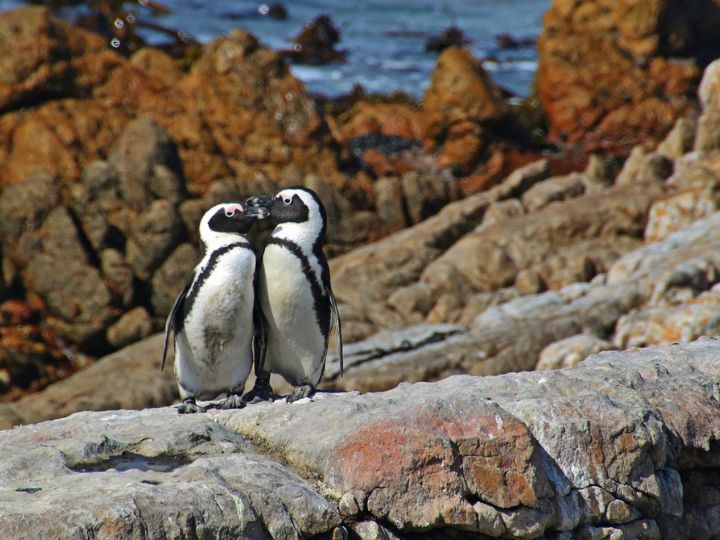
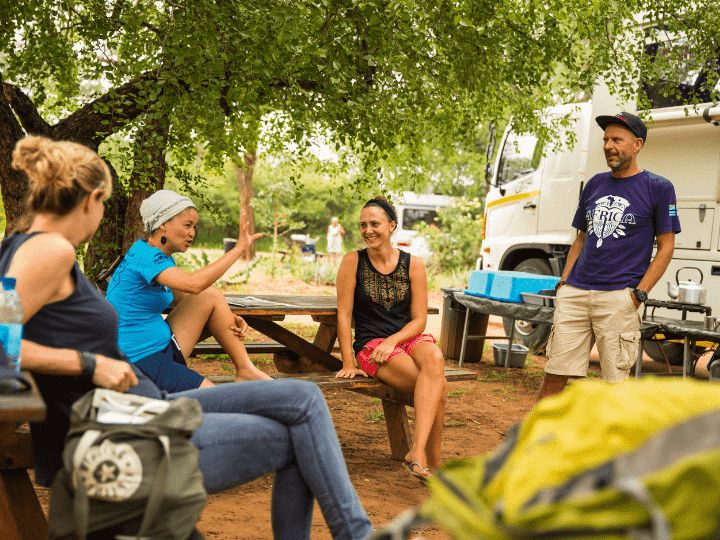
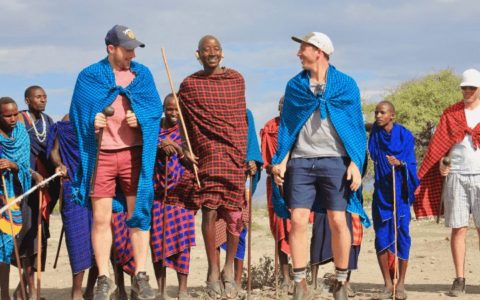
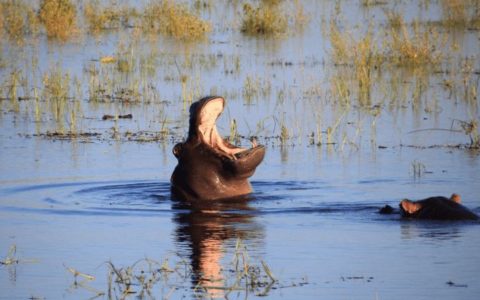
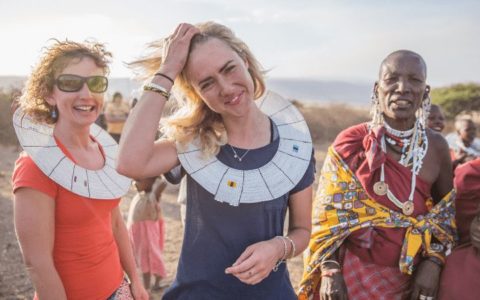
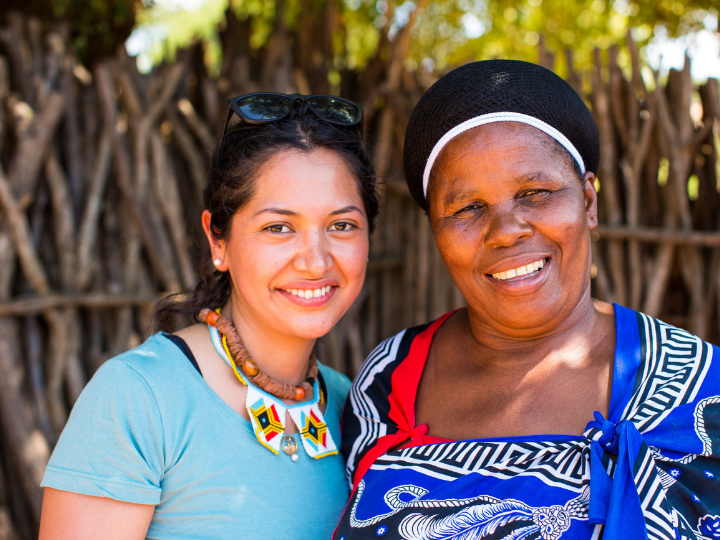
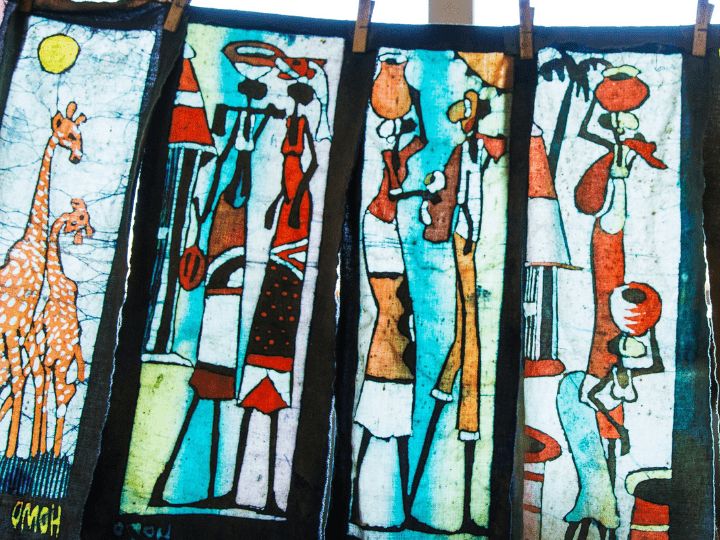



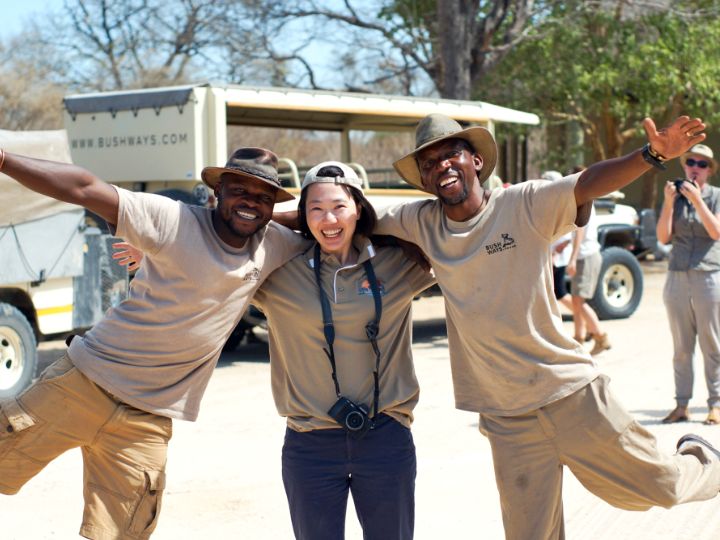
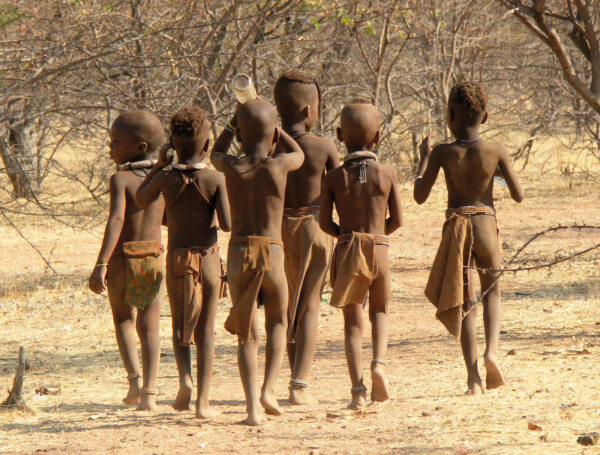
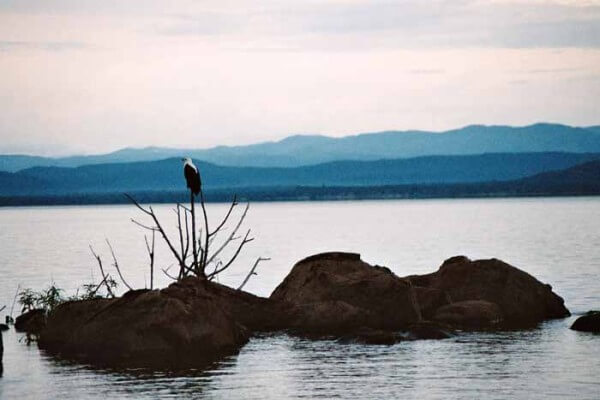

Traveling in group is the best idea. And giving back promotes humanity. Thanks for sharing amazing tips Mrs Jodi